- Accelerate your journey to becoming a Data Engineering expert with our comprehensive Data Engineer Certification Course. Explore Big Data, Hadoop ecosystem, Apache Python basics, AWS EMR, Quicksight, Sagemaker, AWS cloud platform, and Azure services.
- The Best Certification for Data Engineer will help you to learn various concepts as below:
- What does a professional data engineer do:
- A Professional Data Engineer collects, transforms, and shares data to make it useful. They choose tools to meet business needs, build and manage data processing systems, and ensure their security. The exam tests skills in designing, ingesting, processing, storing, and analyzing data, along with maintaining and automating data tasks.
- There are no specific prerequisites but we have mentioned some common standards you should have to start with this course. To enroll in Data Engineer Certification Course, applicants require:
- Target Audience for Data Engineering Certification:
- Registration is open to professionals aspiring to roles such as Data Engineers, Data Analysts, Software Engineers, and IT Professionals, as well as recent graduates with computer science, engineering, mathematics, or related fields.
Understand the significance and benefits of major Big Data and Machine Learning tools within Google Cloud.
Utilize BigQuery for conducting interactive data analysis tasks efficiently.
Employ Cloud SQL and Dataproc for seamless migration of current MySQL and Hadoop/Pig/Spark/Hive operations to Google Cloud infrastructure.
Evaluate and select appropriate data processing solutions offered by Google Cloud for specific project requirements.
A bachelors degree with a minimum of 50% marks
Preferably, 2+ years of work experience
Basic knowledge of object-oriented programming is advantageous
- The Data Engineer Certification Course welcomes applicants from diverse backgrounds, offering valuable opportunities for professionals, recent graduates, and career transitioners alike to excel in the dynamic field of data engineering. Join us to gain the skills, knowledge, and certifications necessary to thrive in today's data-driven world.
- Who should register for the Best Data Engineer Certification:
- Key Benefits of Joining Data Engineer Certification Course:
- Why Choose Us:
- Certifications For Data Engineer: How to Apply:
- Career Growth After The Course:
- Upon completing the Data Engineering Certification, individuals can expect significant career growth opportunities in the rapidly evolving field of data engineering. Here's how the Best Certifications For Data Engineers can enhance career prospects:
- Expanded Job Opportunities:
- Higher Salary Potential:
- Enhanced Credibility and Recognition:
- Accelerated Career Progression:
- Long-term Success and Growth:
- Obtaining the Data Engineering Certification opens doors to a wide range of career opportunities, provides a competitive edge in the job market, and paves the way for long-term success and growth in the field of data engineering.
Professionals: Data Engineers, Data Analysts, Software Engineers, and IT Professionals seeking to advance their expertise in data engineering.
Recent Graduates: Graduates with backgrounds in computer science, engineering, mathematics, or related fields are eager to kickstart their careers in data engineering.
Career Transitioners: Certifications For Data Engineer are also suitable for individuals looking to transition into data engineering roles or expand their skill set to include data-related responsibilities.
Gain specialized skills and certifications aligned with industry standards.
Demonstrate proficiency in data processing, storage, analysis, and management.
Enhance career prospects and stay competitive in the job market.
Comprehensive coverage of Big Data and Data Engineering concepts.
In-depth exploration of the Hadoop ecosystem and Apache Python basics.
Hands-on experience with AWS EMR, Quicksight, Sagemaker, AWS cloud platform, and Azure services.
Practical, real-world applications and industry-relevant curriculum.
Focused training designed to accelerate career growth.
Expert instructors with extensive experience in data engineering.
Simply register on our website and complete the application form.
Provide relevant educational and professional background information.
Await confirmation of enrollment and start your journey toward becoming a certified Data Engineer.
Certified data engineers are highly sought after by organizations across industries.
Opportunities in roles like Data Analysts, Database Administrators, and Big Data Engineers increase post-certification.
Certified professionals often enjoy higher salaries compared to non-certified peers.
Specialized skills and expertise command premium compensation packages.
Certifications For Data Engineer help to validate proficiency in data-related tasks.
Increased credibility among employers and peers leads to greater recognition and respect in the industry.
Certifications For Data Engineer serve as a stepping stone for career advancement.
Opportunities for promotions to senior roles and leadership positions become more accessible.
Certification unlocks a world of career possibilities in the dynamic field of data engineering.
Certified professionals are well-equipped for sustained success and growth in their careers.
- Upon completing the Data Engineering Certification course, individuals unlock a plethora of job opportunities in the rapidly growing field of data engineering. Here are some key roles that certified professionals can explore after learning fundamentals of data engineering and advanced concepts too.
- Overall, completing the Data Engineering Certification course opens doors to a wide range of rewarding job opportunities, allowing certified individuals to thrive and excel in the dynamic field of data engineering.
Data Engineer: As a professional data engineer, individuals are responsible for designing, building, and maintaining data pipelines and infrastructure to support data-driven decision-making within organizations.
Data Analyst: Certified professionals can pursue roles as data analysts, where they analyze large datasets to identify trends, patterns, and insights that drive business strategies and decision-making processes.
Database Administrator: Database administrators manage and maintain databases, ensuring data integrity, security, and availability. Certified individuals are well-equipped to excel in this role.
Big Data Engineer: With expertise in the fundamentals of data engineering, certified professionals are well-suited for roles as big data engineers, where they develop and manage large-scale data processing systems and architectures.
Business Intelligence Developer: Professionals with a Data Engineering Certification can pursue roles as business intelligence developers, where they design and develop BI solutions to empower organizations with actionable insights.
- After completing a Data Engineer Certification Course, freshers can expect competitive salaries in the data engineering field. While actual salaries may vary depending on factors like location, company size, and specific job roles, here are some general salary expectations:
- Here's a table format illustrating the salary expectations for freshers after completing a Data Engineer Certification Course:
- Job Level-Salary Range (Per Year)
- Entry-Level Data Engineer-$60,000 - $80,000
- Junior Data Engineer-$70,000 - $90,000
- Associate Data Engineer-$80,000 - $100,000
- Data Engineering Intern-$20 - $40 per hour
- Overall, completing a Data Engineer Certification Course can significantly enhance the earning potential of freshers entering the data engineering field, providing them with valuable skills and credentials sought after by employers in today's data-driven industries.
Entry-Level Data Engineer: Freshers with a Data Engineer Certification can typically expect entry-level salaries ranging from $60,000 to $80,000 per year in the United States. In other regions, such as Europe or Asia, entry-level salaries may vary but often align with local market standards.
Junior Data Engineer: With some internship or entry-level experience, junior data engineers can command salaries between $70,000 to $90,000 annually. These professionals may be responsible for assisting senior engineers in data pipeline development, database management, and data integration tasks.
Associate Data Engineer: As they gain more experience and proficiency in data engineering skills, associate data engineers can earn salaries ranging from $80,000 to $100,000 per year. They may take on more responsibilities in designing and optimizing data solutions.
Data Engineering Intern: Interns or trainees who have completed a certification course can expect stipends or hourly wages during their internship period. Salaries for data engineering interns typically range from $20 to $40 per hour or may vary based on company policies.
Additional Factors: Salary expectations may also be influenced by factors such as academic background, additional certifications, and technical proficiency in relevant tools and technologies like SQL, Python, Hadoop, Spark, and cloud platforms.
- Curious to learn about roles and responsibilities once you are done with data engineer certification online Let us explain to you.
- Data engineers play a critical role in modern organizations, responsible for managing and optimizing data pipelines, infrastructure, and systems. Here are some key roles and responsibilities of a data engineer after completion of Data engineering certification:
- Data engineers collaborate with cross-functional teams, including data scientists, analysts, and business stakeholders, to understand data requirements and deliver data solutions. They also document data processes, workflows, and system configurations for reference and compliance purposes.
- Data engineers play a pivotal role in modern organizations, driving the design, development, and management of data infrastructure and systems. Obtaining a Data Engineering Certification equips professionals with the skills and knowledge needed to excel in this dynamic and in-demand role.
Data Pipeline Development: Data engineers design, build, and maintain data pipelines to efficiently extract, transform, and load (ETL) data from various sources into data storage systems, ensuring data consistency and integrity.
Database Management: A professional data engineer manages and optimizes databases, ensuring efficient storage, retrieval, and manipulation of data. This includes designing a schema, indexing, partitioning, and implementing data security measures.
Data Integration: Data engineers integrate disparate data sources and formats, ensuring seamless data flow between systems. They may use tools like Apache Kafka, Apache NiFi, or cloud-based services for real-time data integration.
Data Modeling and Warehousing: They design and implement data models and data warehouses to support reporting, analytics, and business intelligence needs. This involves designing dimensional models, optimizing data structures, and ensuring data quality.
Performance Optimization: Data engineers optimize data processing and query performance, identifying and resolving bottlenecks in data pipelines and database operations. They may employ techniques like query optimization, indexing strategies, and partitioning.
Data Governance and Compliance: They ensure compliance with data governance policies and regulations, including data privacy laws like GDPR and industry-specific regulations. This involves implementing data security measures, access controls, and auditing mechanisms.
Collaboration and Documentation: On the completion of Data engineer certification online, professionals become more prominent in collaboration and documentation.
- The Azure Data Engineer Certification Course is designed to equip professionals with the skills and knowledge required to excel in the field of data engineering. By covering a comprehensive range of topics, including Azure data services, database management, data integration, and big data technologies, data engineer certification online ensures that participants are well-prepared to tackle real-world challenges in data engineering projects.
- Learn fundamentals of data engineering to advanced concepts with Experts.
- Overall, the Azure Data Engineer Certification Course provides a comprehensive training program that prepares participants for success in the dynamic and rapidly evolving field of data engineering.
Azure Data Services: With this best data engineer certification course, master the Azure data services such as Azure SQL Database, Azure Cosmos DB, Azure Data Lake Storage, Azure Databricks, and Azure Synapse Analytics.
Database Management: With Data engineer certifications, learn proficiency in managing and optimizing databases, including database design, querying, indexing, and performance tuning.
Data Integration: With the best Certifications for data engineers, learn techniques for data ingestion, extraction, transformation, and loading (ETL) using Azure Data Factory and other integration tools.
Data Processing: Professional Data engineer certification helps you learn to implement data processing solutions using Azure HDInsight, Azure Data Lake Analytics, and Azure Stream Analytics.
Big Data Technologies: Gain knowledge of big data technologies such as Apache Hadoop, Apache Spark, and Apache Kafka for processing large volumes of data upon completing Data engineer certification.
Data Warehousing: Designing and implementing data warehousing solutions using Azure Synapse Analytics (formerly SQL Data Warehouse).
Data Governance and Security: Ensuring data governance, compliance, and security in data engineering solutions, including role-based access control (RBAC) and data encryption.
Real-world Projects: Hands-on experience with real-world projects and case studies to apply theoretical knowledge in practical scenarios.
Certification Exam Preparation: Guidance and preparation for the Microsoft Azure Data Engineer certification exam (DP-203), ensuring readiness to achieve certification.
- After completing Data Engineering Certification courses, individuals find lucrative job opportunities in technology, finance, e-commerce, healthcare, and consulting sectors. Technology firms seek data engineers to manage datasets. Financial services rely on them for analytics. E-commerce platforms optimize data for customer insights. Healthcare utilizes data for patient care. Consulting firms offer diverse projects.
- Top companies hiring data engineers after completing the best certification for data engineer include:
- If you are also keen to work with leading industries, join Certifications For Data Engineer with leaders and give new heights to your career like never before.
Amazon
Microsoft
Apple
Netflix
Uber
Airbnb
IBM
- You May Also Read:
Why Should You Choose Data Engineering Certification?
By registering here, I agree to Croma Campus Terms & Conditions and Privacy Policy
 Course Duration
Course Duration
40 Hrs.
Flexible Batches For You
10-May-2025*
- Weekend
- SAT - SUN
- Mor | Aft | Eve - Slot
12-May-2025*
- Weekday
- MON - FRI
- Mor | Aft | Eve - Slot
14-May-2025*
- Weekday
- MON - FRI
- Mor | Aft | Eve - Slot
10-May-2025*
- Weekend
- SAT - SUN
- Mor | Aft | Eve - Slot
12-May-2025*
- Weekday
- MON - FRI
- Mor | Aft | Eve - Slot
14-May-2025*
- Weekday
- MON - FRI
- Mor | Aft | Eve - Slot
Course Price :
Want To Know More About
This Course
Program fees are indicative only* Know moreTimings Doesn't Suit You ?
We can set up a batch at your convenient time.
Program Core Credentials
Trainer Profiles
Industry Experts
Trained Students
10000+
Success Ratio
100%
Corporate Training
For India & Abroad
Job Assistance
100%
Batch Request
FOR QUERIES, FEEDBACK OR ASSISTANCE
Contact Croma Campus Learner Support
Best of support with us
CURRICULUM & PROJECTS
Data Engineering Certification Course
- Understand the purpose of data modeling.
- Identify the strengths and weaknesses of different types of databases and data storage techniques.
- Create a table in Apache Cassandra.
- Understand when to use a relational database.
- Understand the difference between OLAP and OLTP databases.
- Create normalized data tables.
- Implement denormalized schemas (e.g. STAR, Snowflake).
- Understand when to use NoSQL databases and how they differ from relational databases.
- Select the appropriate primary key and clustering columns for a given use case.
- Create a NoSQL database in Apache Cassandra.
- Explain how OLAP may support certain business users better than OLTP.
- Implement ETL for OLAP Transformations with SQL.
- Describe Data Warehouse Architecture.
- Describe OLAP cube from facts and dimensions to slice, dice, roll-up, and drill down operations.
- Implement OLAP cubes from facts and dimensions to slice, dice, roll-up, and drill down.
- Compare columnar vs. row-oriented approaches.
- Implement columnar vs. row-oriented approaches.
- Explain the differences between ETL and ELT.
- Differentiate scenarios where ELT is preferred over ETL.
- Implement ETL for OLAP Transformations with SQL.
- Select appropriate cloud data storage solutions.
- Select appropriate cloud pipeline solutions.
- Select appropriate cloud data warehouse solutions.
- Describe AWS data warehouse services and technologies.
- Create and configure AWS Storage Resources.
- Create and configure Amazon Redshift resources.
- Implement infrastructure as code for Redshift on AWS.
- Describe Redshift data warehouse architecture.
- Run ETL process to extract data from AWS S3 into Redshift.
- Design optimized tables by selecting appropriate distribution styles and sorting keys.
- Identify what constitutes the big data ecosystem for data engineering.
- Explain the purpose and evolution of data lakes in the big data ecosystem.
- Compare the Spark framework with Hadoop framework.
- Identify when to use Spark and when not to use it.
- Describe the features of lakehouse architecture.
- Wrangle data with Spark and functional programming to scale across distributed systems.
- Process data with Spark DataFrames and Spark SQL.
- Process data in common formats such as CSV and JSON.
- Use the Spark RDDs API to wrangle data.
- Transform and filter data with Spark.
- Use distributed data storage with Amazon S3.
- Identify properties of AWS S3 data lakes.
- Identify service options for using Spark in AWS.
- Configure AWS Glue.
- Create and run Spark Jobs with AWS Glue.
- Use Spark with AWS Glue to run ELT processes on data of diverse sources, structures, and vintages in lakehouse architecture.
- Create a Glue Data Catalog and Glue Tables.
- Use AWS Athena for ad-hoc queries in a lakehouse.
- Leverage Glue for SQL AWS S3 queries and ELT.
- Ingest data into lakehouse zones.
- Transform and filter data into curated lakehouse zones with Spark and AWS Glue.
- Join and process data into lakehouse zones with Spark and AWS Glue.
- Define and describe a data pipeline and its usage.
- Explain the relationship between DAGs, S3, and Redshift within a given example.
- Employ tasks as instantiated operators.
- Organize task dependencies based on logic flow.
- Apply templating in codebase with kwargs parameter to set runtime variables.
- Create Airflow Connection to AWS using AWS credentials.
- Create Postgres/Redshift Airflow Connections.
- Leverage hooks to use Connections in DAGs.
- Connect S3 to a Redshift DAG programmatically.
- Utilize the logic flow of task dependencies to investigate potential errors within data lineage.
- Leverage Airflow catchup to backfill data.
- Extract data from a specific time range by employing the kwargs parameters.
- Create a task to ensure data quality within select tables.
- Consolidate repeated code into operator plugins.
- Refactor a complex task into multiple tasks with separate SQL statements.
- Convert an Airflow 1 DAG into an Airflow 2 DAG.
- Construct a DAG and custom operator end-to-end.
Mock Interviews

Phone (For Voice Call):
+91-971 152 6942WhatsApp (For Call & Chat):
+919711526942SELF ASSESSMENT
Learn, Grow & Test your skill with Online Assessment Exam to
achieve your Certification Goals

FAQ's
Data Engineering involves collecting, processing, and managing large volumes of data to enable data-driven decision-making.
Eligibility criteria typically include a bachelor's degree and basic programming knowledge; though specific requirements may vary.
You'll learn tools like Hadoop, Spark, SQL, Python, and cloud platforms such as Azure and AWS.
Learning data engineering fundamentals from Croma Campus ensures comprehensive knowledge and practical skills.
To start learning Azure data engineering at Croma Campus, enroll in the relevant course and follow the curriculum.
The duration of the Data Engineering Certification course at Croma Campus varies, typically ranging from a few weeks to several months.
Skills required for data engineers include proficiency in programming, database management, data processing tools, and problem-solving.
Yes, ETL (Extract, Transform, Load) processes are essential for data engineering to transform raw data into usable formats.

- - Build an Impressive Resume
- - Get Tips from Trainer to Clear Interviews
- - Attend Mock-Up Interviews with Experts
- - Get Interviews & Get Hired
If yes, Register today and get impeccable Learning Solutions!

Training Features
Instructor-led Sessions
The most traditional way to learn with increased visibility,monitoring and control over learners with ease to learn at any time from internet-connected devices.
Real-life Case Studies
Case studies based on top industry frameworks help you to relate your learning with real-time based industry solutions.
Assignment
Adding the scope of improvement and fostering the analytical abilities and skills through the perfect piece of academic work.
Lifetime Access
Get Unlimited access of the course throughout the life providing the freedom to learn at your own pace.
24 x 7 Expert Support
With no limits to learn and in-depth vision from all-time available support to resolve all your queries related to the course.
Certification
Each certification associated with the program is affiliated with the top universities providing edge to gain epitome in the course.
Showcase your Course Completion Certificate to Recruiters
-
Training Certificate is Govern By 12 Global Associations.
-
Training Certificate is Powered by “Wipro DICE ID”
-
Training Certificate is Powered by "Verifiable Skill Credentials"




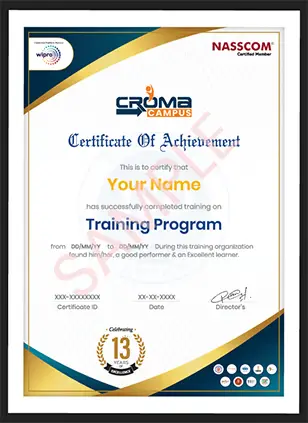
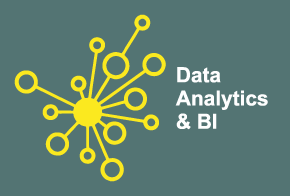
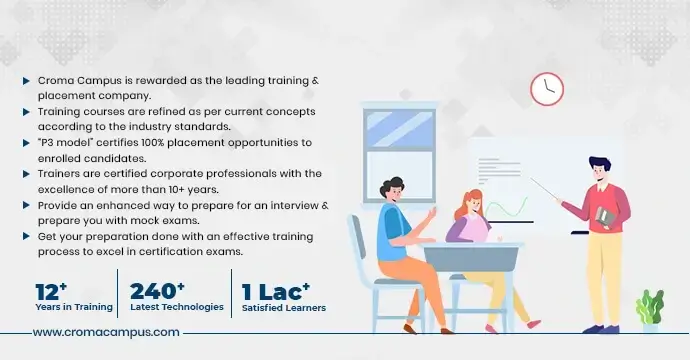

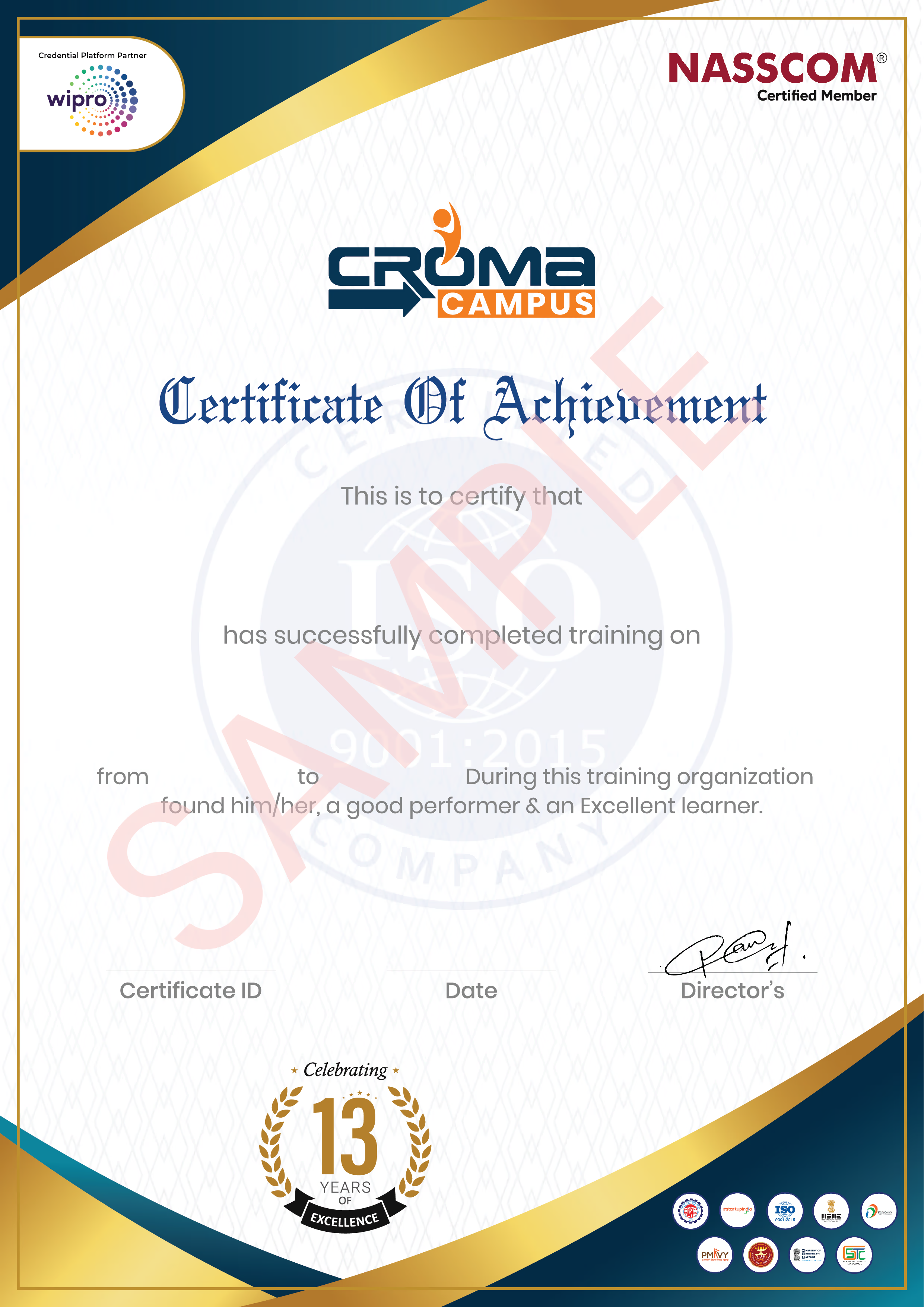
.webp)
.webp)
.webp)
.webp)






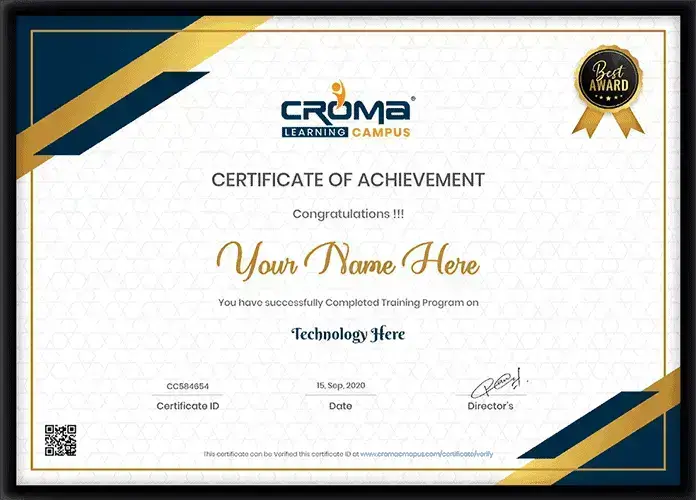














 Master in Cloud Computing Training
Master in Cloud Computing Training